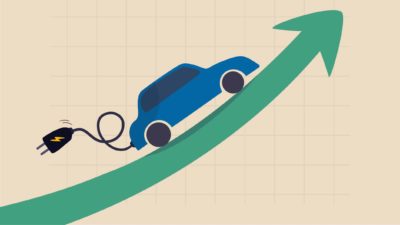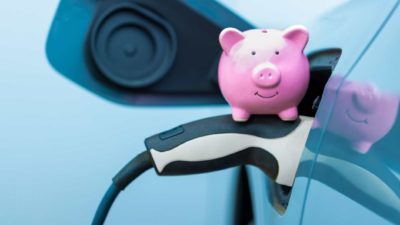This article was originally published on Fool.com. All figures quoted in US dollars unless otherwise stated.
The stock market had tough day on Monday, and the Nasdaq Composite (NASDAQ: .IXIC) led the way lower. At Monday's close, the Nasdaq was down 2.55%, to 12,381. The S&P 500 Index (SP: .INX) was down 2.1% while the Dow Jones Industrial Average Index (DJX: .DJI) lost 1.9%.
Tesla (NASDAQ: TSLA) has been a strong performer in the Nasdaq over the past several years, but it didn't help the index's cause on Monday, closing down more than 2%. The electric vehicle pioneer announced some mixed news over the weekend, and that has investors thinking twice about the stock even as the company plans to move forward with its stock split later this week. You'll find all the details below.
Higher prices for access to self-driving capabilities
Over the weekend, Tesla announced that it would boost the amount it charges to give auto buyers prospective access to full self-driving capability on its vehicles. Currently, customers pay $12,000 when they order a vehicle to have the ability to receive full self-driving updates. Beginning on Sept. 5, according to a tweet from CEO Elon Musk, that price will rise to $15,000. The move marks the second time this year that Tesla has raised the price of the service, which began 2022 at $10,000.
The move is consistent with Tesla's long-term plan to raise the price of full self-driving as its features become broader. In the long run, Tesla hopes that if it can get regulatory approval for a system that will actually handle driving the car on its own without any operator supervision, it will be able to charge as much as $100,000 or more to would-be vehicle purchasers. The discounted price now reflects the fact that the system doesn't have regulatory approval and lacks the features that would allow Tesla vehicles to drive themselves in a fully autonomous manner.
A big win from recent legislation
Tesla is also shaping up to be a big winner from the passage of the Inflation Reduction Act. The new law included many different incentives for renewable energy initiatives, but most importantly for Tesla, it essentially reset the clock for tax credits related to EV purchases. With the original tax credit provisions having set limits on the number of vehicles that could qualify, Tesla buyers were no longer eligible to receive the same credits that earlier purchasers had received under the old law.
The new law will once again give Tesla buyers the chance to get up to $7,500 as of the beginning of 2023. That could give the automaker an incremental boost, and even though demand for the vehicles has remained strong, every incentive could be valuable for Tesla in its efforts to keep its steep growth trajectory going forward.
The split is coming
Meanwhile, this week will bring the completion of the long-awaited Tesla stock split. The company's 3-for-1 split will take effect after the close of trading on Wednesday, Aug. 24. Investors will be able to buy and sell shares on a post-split basis for the first time on the morning of Thursday, Aug. 25.
Stock splits don't have a fundamental impact on a company's business, but investors nevertheless often see them as a positive sign of optimism. Lower share prices can make it easier for small investors to buy whole shares, although many brokerage companies offer fractional share purchasing capabilities that have allowed those with less than $800 to $900 to buy Tesla stock in amounts less than one full share.
In the long run, the significance of business moves like full self-driving, as well as financial effects from government incentives, will have a bigger impact on Tesla stock than a split. When the split finally gets done, investors will likely turn their attention back to more important matters.
This article was originally published on Fool.com. All figures quoted in US dollars unless otherwise stated.








